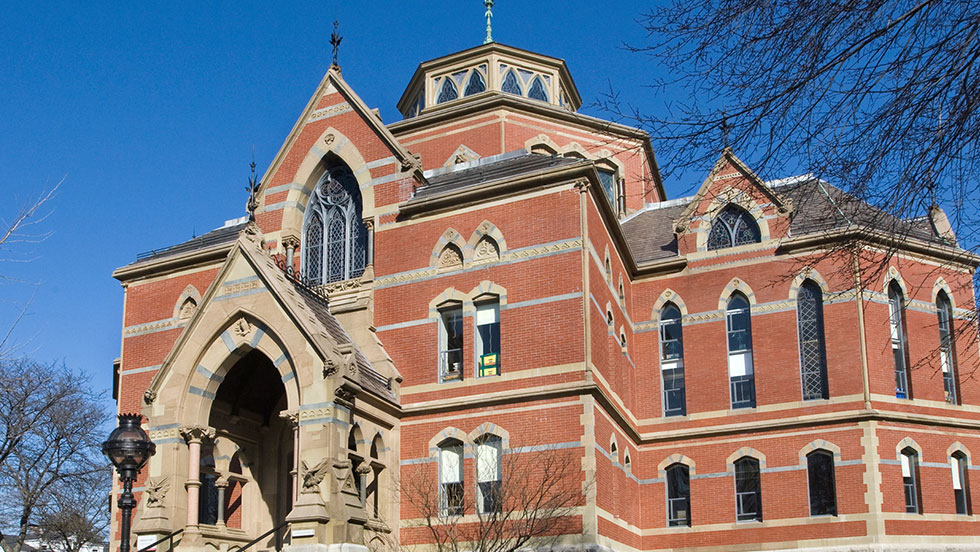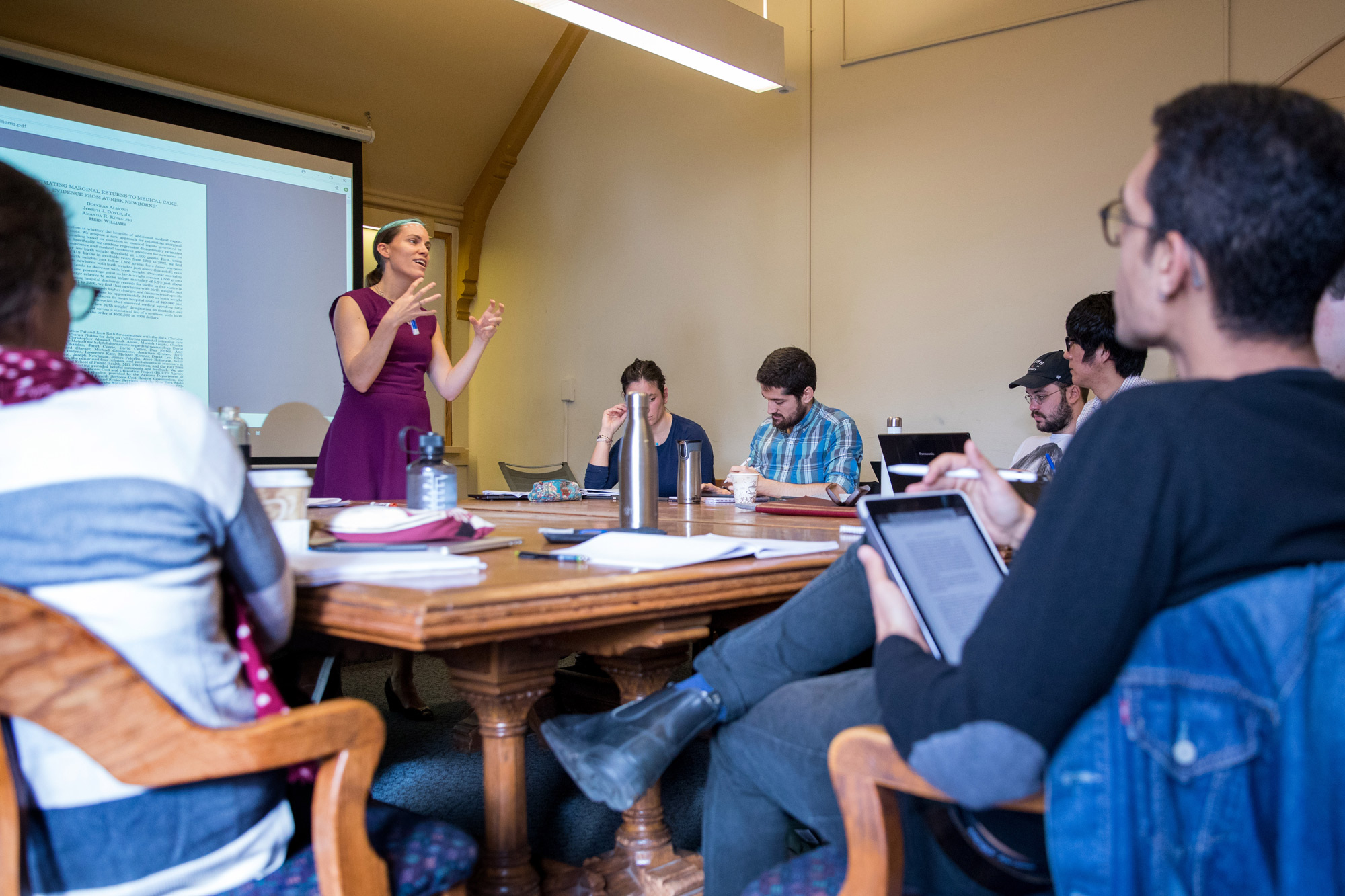PROVIDENCE, R.I. [Brown University] — A $25 million gift from private equity investor and Brown University alumnus Orlando Bravo will fund the creation of an economics research center at Brown, strengthening what is already a globally recognized, nationally ranked department at the University.
More than half of the gift from the Bravo Family Foundation — $15 million — will support the launch of the Orlando Bravo Center for Economic Research, enabling the department to expand the scope of its high-impact, data-driven research and to amplify its focus on training the next generation of economics researchers. The remaining $10 million will fund the recruitment and retention of world-class economics faculty.

Brown President Christina Paxson said Bravo’s gift will not only bolster the University’s outstanding economics research, but will also prove transformative for future generations of economists. Students at Brown, both undergraduate and graduate, will benefit from increased opportunities to conduct groundbreaking research alongside faculty and learn from some of the country’s greatest minds in economics.
“Orlando and I have much in common — we both fell in love with economics after recognizing the impact of the discipline in improving human welfare,” said Paxson, an economics researcher who has served as a professor at both Brown and Princeton University. “This incredibly generous gift will power years of scholarship that propels positive change — and it will enable our students to have a hand in conducting original economics research alongside internationally respected faculty.”
Bravo, who graduated from Brown in 1992 with degrees in economics and political science, is the co-founder and managing partner of private equity firm Thoma Bravo.
“Brown was the place that opened up incredible opportunities for me,” Bravo said. “Studying economics led me to pursue work in financial services, which led me to banking, business school and law school. And that led me here, where I am now. None of that would have been possible without Brown and without economics.”
Bravo has an extensive track record in supporting initiatives that promote social mobility. The emphasis by many of Brown’s faculty on economic disparity, and the role of that research in inspiring conversations that lead to changes in public policy, inspired his family’s support for the department, he said.
“I was excited to learn about Brown’s commitment to its economics department as one of the University’s key centers of excellence,” Bravo said. “The department is at the forefront of a number of areas of economic research, including an impressive amount of work that helps expose income inequality and promote social mobility, and I am delighted to support the development and growth of those research efforts.”
Enabling more impactful work
Bravo’s gift to Brown comes at a time of sea change in the field of economics.
Anna Aizer, chair of Brown’s economics department, said a massive surge in the availability of data has driven economists at the University to develop innovative data-mining methods, many of which are shedding light on inequities in health care, education and earning potential. With the establishment of the Orlando Bravo Center for Economic Research, she said, faculty at Brown will enjoy new opportunities to extend research on a range of crucial questions.
“Some of the most important and impactful research is scholarship that requires significant resources to conduct,” Aizer said. “This gift will enhance our ability to develop new data sets and develop new techniques to answer many of today’s most important policy questions.”

A number of Brown economics faculty are using data to answer big questions about social mobility and inequality, Aizer said, including as part of the James M. and Cathleen D. Stone Wealth and Income Inequality Project. One scholar collaborated with other experts to create an “Opportunity Atlas” that tracks economic mobility across every neighborhood in the United States. Another collected data on Huntington’s disease to investigate the economic reasons why so few at-risk individuals choose to undergo genetic testing. And yet another faculty member gathered data collected from weather satellites to measure economic growth in poor countries based on light produced at night.
Social mobility and inequality are just two of many research strengths in Brown’s economics department, Aizer added. Faculty are using novel data sources and innovative methods of analysis to answer critical questions about government programs, health and medicine, education, politics, media and infrastructure. Researchers have harnessed data to examine the effect of a city’s new subway system on air pollution, the long-term impact of federal welfare programs on the children of mothers who live in poverty, and the ways in which the consumption of biased media changes voting patterns. Other faculty take a theoretical approach to the study of financial markets and individual decision-making, providing insights that could spur more efficiency and fairness in policies, financial systems and more.
An economics research center, Aizer said, will allow faculty to dig deeper into their respective research subjects, from identifying disparities in economic development between countries to delivering data that informs policy reform in education. Faculty will be able to hire graduate students to assist in their work, attend important conferences in their field and partner with specialists in other fields of study to gain unique perspectives on the questions they are investigating.
More influential research is on its way, Aizer said. One economics scholar is investigating whether access to family planning options in an African country can improve college matriculation rates. Another is working to understand why some countries experience economic development more quickly than others.
“Many of these projects get at fundamental questions of opportunity and well-being,” Aizer said. “This research has the potential to change policy, both here and abroad, because the results reveal such clear policy implications.”
Inspired giving
For Bravo, who grew up in Puerto Rico, the department’s work focused on informing solutions to inequity resonated. He was particularly intrigued by the significant roles that undergraduate and graduate students play in economics scholarship at Brown.
“I am passionate about giving young adults opportunities they wouldn’t otherwise have,” Bravo said. “I am proud to support economics research that draws attention to inequality and promotes policies that enhance social mobility.”
In addition to his bachelor’s degree from Brown, Bravo earned a J.D. from Stanford Law School and an MBA from the Stanford Graduate School of Business. He co-founded Thoma Bravo, a private equity firm focused on software and technology businesses. He has served on the boards of multiple companies, including Blue Coat Systems, Qlik Technologies and Solar Winds.
The Bravo Family Foundation focuses much of its philanthropy on social mobility, both in Puerto Rico and elsewhere in the U.S. In Puerto Rico, the foundation seeks to promote a more just society where youth of all socioeconomic backgrounds have access to meaningful growth opportunities. The foundation was initially involved in providing humanitarian aid for Puerto Ricans in the wake of Hurricane Maria. Since then, the Bravo Family Foundation has established long-term programs in the island that provide opportunities for young and talented adults. In addition to its work in Puerto Rico, the foundation supports health care initiatives, education and early childhood support programs.
Bravo and the Bravo Family Foundation have consistently supported the University’s strategic priorities. Previously, the foundation made a $1 million gift to the Faculty Development Fund, which supports research and travel for faculty at Brown, and created a scholarship fund to support Latinx students. He also serves on the President’s Leadership Council.